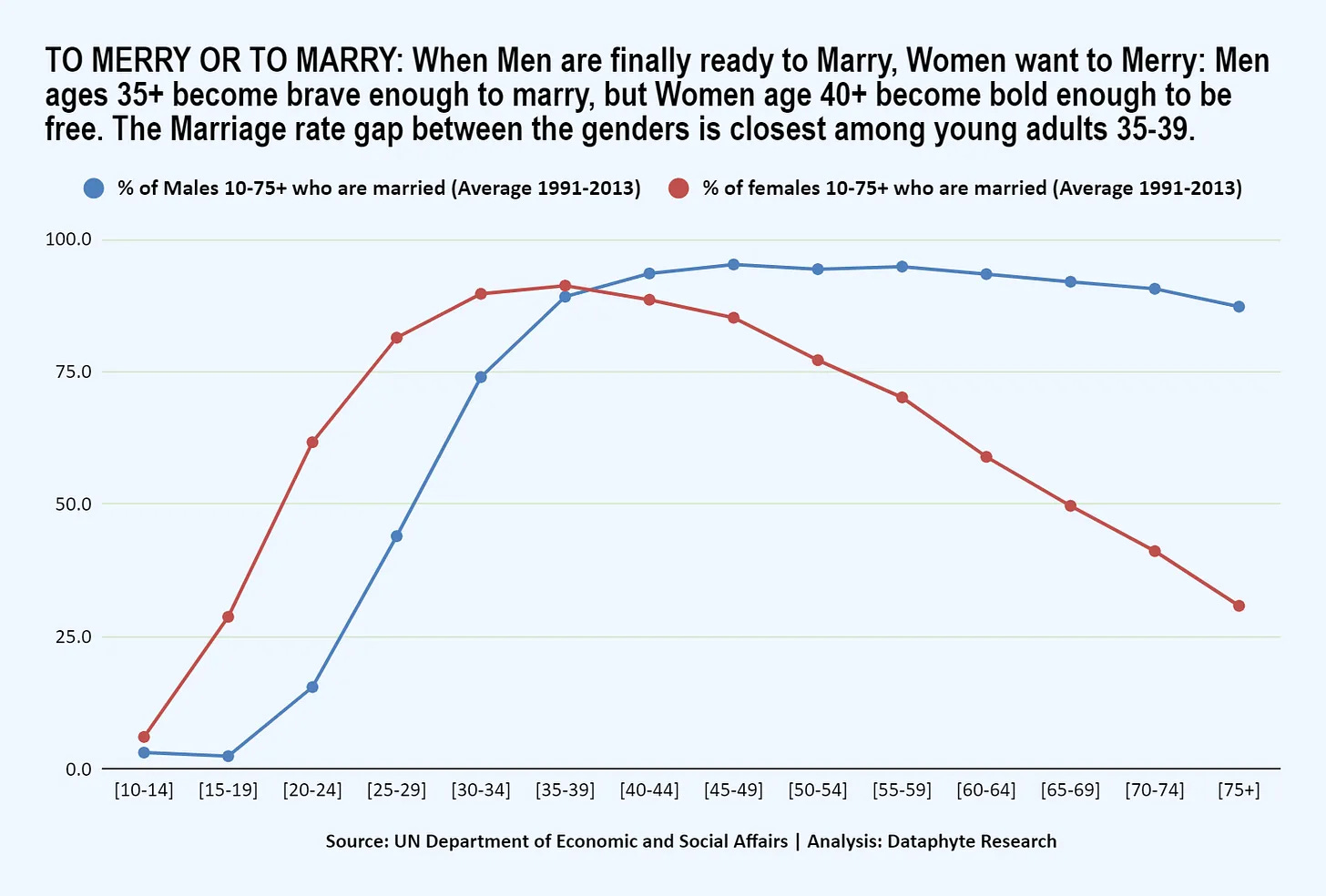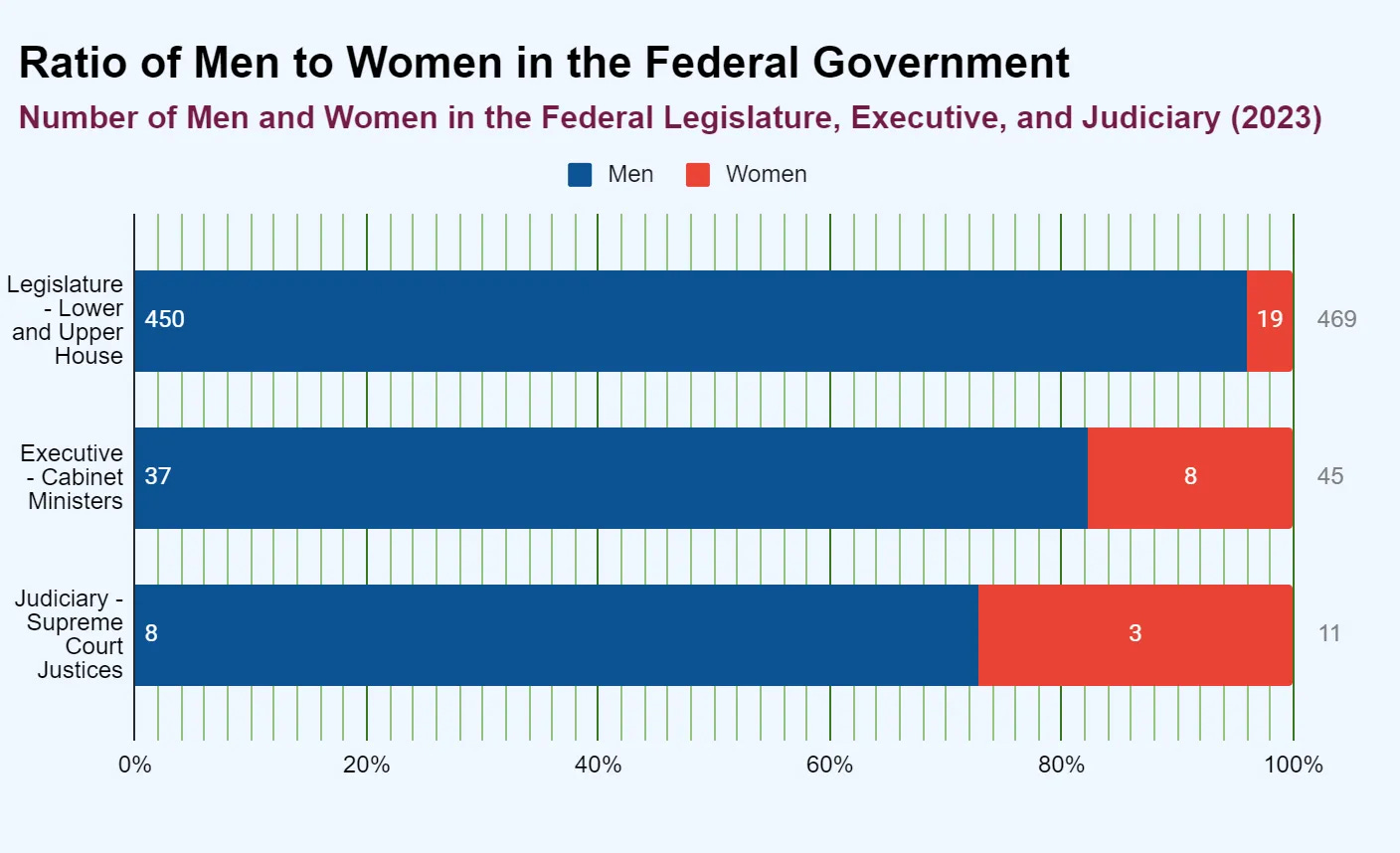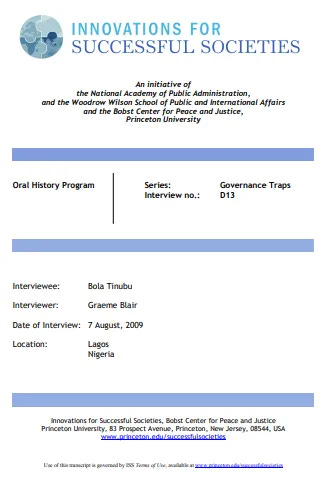Remembering 2023, Month by Month (2)
Welcome to the New Year!
Good to have you on our side in 2024. Your readership keeps us going, writing week after week, knowing someone finds this insightful and useful at the informative, interpretive, and investigative levels. We hope to meet you in person at one of our Dataphyte Member Events sometime this year. We’ll sure send you an invite here.
Last week, in the earlier edition, while remembering the event that shaped the 2023 year, we guessed we might have left out your favourite Dive.
We tossed the coin and it showed there’s a 50% chance 🥲 the Data Dive you found most impressive last year could show up in this concluding part of the 2023 recap.
Let’s see.
July
Gender took the spotlight in July.
The two Gender-inclined editions took the 2 top spots as the most-read among the 5 dives that month.
We had to separate the exact from the exaggerated in the UNDP 2023 Gender Social Norms Index (GSNI) Report and the UK Guardian’s mainstreaming of same. And we also checked how belief in God affected people’s biases against the female gender.
However, God, Guardian, and the Gender Agenda edged the sequel, God, Guardian, and the Gender Agenda (2), to take the first spot that month. Here’s the introduction:
“Nine out of 10 people are biased against women, says ‘alarming’ UN report.”😨
The Guardian headline conveyed the findings of the United Nations Development Programme (UNDP) 2023 Gender Social Norms Index (GSNI).
How can the world be livable if these many people have a bias against women? Or rather, how do women cope if these many people hold prejudiced views about them?
Granted the world is not an entirely pleasant place for many, it has been more unfair to women than men in many instances, for as long as homo sapiens walked the plains and heights of planet Earth.
All the same, how can these many people have a bias against women - 90 out of 100 people including women being biased against women?
So, what if this ‘alarming UN report’ was true?
It means that if I sat in the same room with former Presidents like Barack Obama, Muhammadu Buhari and 7 others, I would be among the 9 individuals who have a bias against women.
This means Mr Obama too would be among the gender-biased 9? Because President Buhari is very much not biased against women and girls.🤭
But before Obama and I are labelled as being biased against women, I’d rather take a keener look at the UN figures.
You had better come with me to know for yourself. You could be among the 9 usual suspects of gender bias among the 10 in every room in the world.”
August
August could be the best month for Dataphyte folks. We sang an ode to Ode, our beloved colleague, who finally found a deeper love in Nora than in analysing data and tracking trends.
Ode’s long awaited nuptials led us to probe the timing and terms of marriage in Ode to Ode: To Marry or To Merry.
Besides examining data on prevalence of child marriage in Africa, for adults, we find out that “Just as the younger men treasure their freedom and independence before 35, the older women finally begin to treasure their own freedom and independence after 40.”
But thoughts of marrying or merrying without marring young boys and girls’ lives became second place as soldiers sacked democracy in Niger on July 26. Niger Coup: After Burkina Faso, Before Sierra Leone then became the most read of the all 4 editions in August. Here’s the introduction:
“When soldiers in Burkina Faso sacked the government on January 23, 2022, we analysed the incidence of coups on the African continent in one of the most-read editions of Data Dives.
In the first section of the February 11, 2022 edition - France's Unweaned Colonies, Facing Unsparing Cancers and Nigeria's Unhappy Clinicians - we noted 7 things:
The Greater the French presence in any African region, the higher the incidence of Coups there.
There is more French presence in West Africa than in East, North, Southern, and Central Africa.
West Africa alone (out of the 5 geographical regions) holds 57% of all successful coups in Africa.
It is 53% likely that the military will attempt a coup in a former french colony in West Africa.
Citizens of francophone West African countries see coups as an answer to France’s colonial menace in their land.
The Possibility of Coups in Anglophone West Africa has drastically reduced.
The trend of Falling Francophone Democracies is proportional to Rising Anglophone Autocracies.
19 months after the successful Burkina Faso Coup, The Nigerien army toed the line of their Burkinabe counterparts. They repeated the same excuse for toppling the government. Their citizens pointed the accusing finger in the same direction - France.
The results of the analysis then stand today. Here is what we wrote then:”
September
Of the 4 Data Dives in September, On Political Ambitions and the People’s Aspirations was the next most-read edition.
Another gender treat, Gusau, Guangzhou, and Global Gender Gaps in Education was the most-read edition. Here’s the introduction:
“On Friday morning, suspected terrorists attacked three female hostels at the Federal University Gusau, Zamfara State, Nigeria, abducting about 24 students. According to Premium Times, witnesses reported that the numbers could be more.
The police spokesperson, Yazeed Abubakar, confirmed the abduction but could not provide an accurate count of the abducted students.
Fortunately, soldiers from the 1 Brigade Nigerian Army in Gusau were able to rescue six of the abducted students. The attack began around 3 a.m. in the Sabon Gida area, where the terrorists fired shots and conducted house-to-house searches for the students.
During the operation, the terrorists also blocked the Gusau-Funtua highway, and additional militants were stationed near the university's main gate.
The university’s host community, Sabon Gida, has been grappling with security challenges, leading to several instances of student abductions.
A previous report from Premium Times highlighted the university management’s dismissal of some students who had protested against the prevailing insecurity in the area.
Conflict and crisis rank among the top threats to the education of girls and women in Nigeria, widening the gender gap in education locally and globally.
Among other systemic barriers, events such as the raid in Gusau contribute to the poor rating of Nigeria globally in terms of the female-to-male ratio of students in its tertiary institutions.
Nigeria ranks 112th of 128 countries in the world in female to male ratio of students in tertiary institutions, with a female:male ratio of 72:100. This situates the country among the 17 worst female:male gender gap in tertiary education in the world.
The female to male ratio of students in secondary schools is higher, at 95:100, and Nigeria ranks better at 104th among 124 countries, 20 places from the lowest-ranked country.
Around the world, “there are three times as many attacks on girls’ schools than boys' schools. When schools are ambushed, children run the risk of death or injury, infrastructure is destroyed, and education systems are weakened long-term. Without education, girls lack the skills they need to cope with the crisis and help rebuild their communities.
“An estimated 39 million girls and adolescent girls in countries affected by armed conflict or natural disasters lack access to quality education. Refugee girls are half as likely to be in school as refugee boys,” the Global Citizen reported.”
October
Reflections on a pre-election gender commentary, Tinubu’s Trail of Male-Male Tickets: An October Throwback came tops.
It was the most-read of the 5 Dives in October. It beat Life: Nasty, Brutish, and Short (On Palestine’s Brutish October and Colonial British Order) to the second place. Here’s its Introduction:
“Last October, Mr Bola Ahmed Tinubu was everything but the President of Nigeria, Africa’s most populous country.
At the time, Dataphyte moderated the controversy surrounding Tinubu’s choice of a presidential running mate. He had chosen Kashim Shettima, an individual of like faith, as his vice presidential running mate.
Choosing a presidential running mate from the same faith was unpopular in Nigeria. The country has a tradition of seeking inclusion of people from all cultures and faiths in political appointments.
We stressed then that the governance issue at stake was not the Tinubu-Shettima ‘Muslim-Muslim’ ticket but the preponderance of male-male tickets in all the major political parties.
The lack of gender inclusion in candidates’ choice of running mates at the federal and gubernatorial races for the executive offices was apparent.
All the major political parties at the time had male-male President-Vice President candidates.
Beyond that controversial joint ticket with Kashim Shettima, President Tinubu has chosen even more ministers and advisers to co-lead Nigeria with him, attracting cheers and criticism from different quarters.
Thank you for reading Data Dives from Dataphyte. This post is public so feel free to share it.
Dataphyte checked Tinubu’s subsequent choice of the first set of 45 ministers. It seems the former APC candidate has not changed in his exclusion of females from his joint leadership picks.
Only 8, or 18% of President Tinubu’s 45 cabinet ministers, are females. The other 37 are males.
The 8 female ministers are Lola Ade John, Doris Anite, Nkiruka Onyejeocha, Uju Kennedy, Betta Edu, Mariya Mahmoud, Imman Suleiman, and Hannatu Musawa.
Yet, compared with the federal executive arm of government, the proportion of women is even lower in the federal legislature.
Only 19, or 4% of the 469 federal legislators, are females. The other 450 members are males.
Business Day reported that “the dwindling number of women elected into the nation’s parliament has continued in the 10th Assembly. Experts say the situation is deplorable, especially considering increased agitations for having a gender-balanced parliament.
“In the Senate, out of the 109 senators, three are female, which was a reduction from the seven in the 9th Assembly.
“All female senators in the 9th Assembly lost their re-election bid, going away with rich legislative experience.”
“In the House of Representatives, sixteen women were sworn in out of the 360 lawmakers, there is a slight increase here, compared to 13 in the previous House.”
Last October, Dataphyte reported that the “economic and political opportunities for women are on the decline” when the Global Gender Gap Index in 2022 is compared with that in 2017.
“A token of 22 female legislators to 100 male legislators by 2027, or simply 2 female legislators to 10 male legislators in the Local government councils, State legislatures, and the National Assembly by 2027,” was proposed in the report.
Except for the Supreme Court, no other arm of the federal government made this minimalist progress to the 22% female inclusion in the highest political positions in the country.
The consequences of excluding women from political and business leadership or prioritising religious inclusion over gender inclusion are found in this throwback of “Agenda 2023: Male-Male Ticket, Muslim-Christian Thicket, and a Modest Male Trinket”
November
Governance Traps: Tinubu in the Tale of Two Capitals (Political Antecedents or Mere Accidents?) narrowly beat Russia’s Grim Gaze on Gaza (A Troubled Rouble and Gaza’s Tons of Rubble) to earn the top spot, as the most read of the 4 Data Dives in November. Here’s the introduction:
Despite the mystery that trailed his identity and academic credentials since 1999, the foremost selling point of candidate Tinubu in the 2023 presidential elections remained his governance performance in Lagos from 1999 to 2003.
Some believe he still hires and fires the pilots and copilots of governance in that state to date.
In a way, Candidate Tinubu seemed to be saying: “See what I did (and what I’m still doing indirectly) for the state in Lagos, I’ll do for the country in Abuja.” And quite a number of people believed him, especially the older voters.
Six months into his government now from Abuja, some of those who believed in him are beginning to doubt his capacity to demonstrate his development craft at the national level.
Could Tinubu have fallen early into Nigeria’s national governance trap?
Could the governance trappings of Abuja have veiled and led him unawares into the trap he once deactivated in Lagos?
Fourteen years ago, as part of Princeton University’s Oral History programme, Governance Traps, Graeme Blair interviewed Bola Tinubu on his perceived transformational work in the densely populated, thinly landed city-state of Lagos.
This was two years after Mr Tinubu’s exit from the office of the Governor of Lagos State.
Besides the academia, quite a number of the older folks who voted Mr Bola Tinubu into the office of the president refer to his days as governor of Lagos State.
December
I think December was only about COP 28 and Dubai. The 2 commentaries on COP 28 hosted by Dubai were the most read of the 5 dives in December.
COP 28: Partners, Participants and Parties at the Party (The Management, The Media, and The Main Teams) came first.
COP 28: Middle Ease in the Middle East (Of Nigeria’s Irrestrainable Tourists and UAE’s Irresistible Tourism) came second.
This is the introduction to the most read COP 28 commentary:
It is unsurprising that the Nigerian delegates to the 28th Conference of Parties (COP 28) is the highest in Africa. What has been the subject of debate is why the country’s delegates tie with countries like China at 1,411 or surpass the 770 delegates of a country like the United States of America.
Besides concerns around the relatively high number of Nigerian participants alone, which was put at 591 as of November 30, 2023, the name and designation of some of the Nigerian delegates have attracted comments from Nigerians ranging from the caustic to the sarcastic.
It worries many that President Tinubu’s Government is spending money to fly members of his family to a serious policy roundtable when they have no official role in the country’s entourage.
Some maintain that a President is at will to travel with any member of his family or friend that he wishes. What they disagree with is the designation of the President’s son and friends as “Management Staff” when they fulfil no such roles.
A Living Metaphor for 2024
And if by now none of your favourite Dives showed up in the full 2023 recap, we’re playing the bet on the same side.
Honestly, there are 2 editions of Data Dives that I thought would make it to the two top reads in the months they were published - Mohbad: Music, Money, and Morbid Moments in October and Crisismax at Christmas in December.
That’s life.
It’s a 50-50 head-tail expectation from the coin we tossed 🪙.
Good wishes aren’t enough.
Work plus luck does.
Coincidentally, this is our outlook on the country for 2024. Let’s catch up on this in the Data Dive next week.
See you then!
Thanks for reading this Data Dive. Cheers to frank reflections and finer results in 2024!












